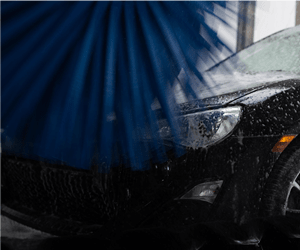
Managing Risk and Reaping Rewards
January 1, 2015
7 minute ReadNo business owner is a stranger to risk. From Fortune 500 companies to the corner car wash, taking on risk is inherent to the short and long term success of every venture. The very act of conceiving and starting one’s own business is, in itself, a conscious decision to accept many different kinds of risks - financial risks being the most paramount in a veritable galaxy of unpredictable elements.
The problem with navigating the pitfalls of different kinds of business risks is that there isn’t one principal map to help you dodge the many snake pits of failure. This is primarily because every business is different. Even businesses that offer the same services still vary greatly in the way they provide those services and the various conditions under which they deliver them to their customers. And with these differences comes a level of subjective uncertainty that can make it difficult for business owners to know how to ensure they’re making the right decisions when it comes to taking on risks.
As every business is different, so are its owners. The chances are good that you started a business that was a nice fit to your personality, and if you’re lucky, you’re doing something you truly love. Business owners pour quite a bit of their hearts and souls into their businesses and are proud of what they’ve built. To a large extent, your business is very much a part of your very identity - especially if you’ve been at it for years. And who you are as an individual has a great deal with how you take on and manage risks.
In a 2010 article for the Strategy & website, Matt Palmquist reported that, “The level of risk that an organization assumes over time is directly related to the CEO’s personality. Executives with negative personalities, exhibiting nervousness or worry, are less likely to take risks that generally prove to be unfavorable.” Conversely, Andrew Comensoli reported in a 2013 article covering financial risk taking for Commonsense.net that, “Personality constructs such as sensation-seeking and impulsivity...have been linked to general risk-taking. Similarly, the type A personality type has been associated with a willingness to take risk in everyday money matters.”
Clearly, these findings should come as no surprise to anyone. But they are brought to the fore here for good reason. Knowing and understanding how you truly view and react to risk and how you approach and manage it is important in giving you some guidance to work with. If you fall into the category that exhibits “nervousness or worry,” you’re clearly cautious with your risk taking. But because sometimes taking a well calculated risk can be quite advantageous (as we’ll look at a little later), you should perhaps do the proper research and roll the dice from time to time. If you are the “sensation-seeking, impulsive” type, then perhaps you’re taking on too much risk, and the chances are, if you’ve been too risky with your business, it likely shows in one way or another.
As a freelance television producer, Jonathan Craig knows a thing or two about risk. Craig has worked on such well-known reality shows as Lockup and Top Chef, but like many skilled artisans in today’s workforce, he remains freelance. “I think it’s important that business owners know their personalities and know if they’re capable of recovering from mistakes, both big and small. Because if you’re aiming for short-term rewards, I think that you have to be willing to recover very quickly from making mistakes that are the results of that approach,” said Craig.
“Because I’m a freelance producer, there’s no guaranteed work. And because of that fact, freelance work is relatively risky, so risk is something that I definitely take into account a lot because I consider myself a naturally risk-averse person at heart. It’s important to try to understand my needs when working on something that may appear risky.”
Craig adds that even though his line of work involves plenty of inherent risk, he allows his caution to guide him in his choices rather than restrict him from taking any risk at all. “Because I am so risk-averse and such a cautious person, I find that I gravitate more towards longer-term projects and focus on the distant horizon and on developing relationships with people who have more long-term goals and have their sites set ahead rather than on a short-term reward,” he said. “In the end, it’s really important to understand your personality and what you can successfully recover from and what you’re capable of dealing with if the risk doesn’t pay off and there’s no reward.”
In seeking out freelance workers like Jonathan Craig and other business owners to gain some insight on risk management, we came across an individual who we considered to be about the most qualified authority on the subject of risk that we could find. That’s because Craig Wolfe is the owner of CelebriDucks - manufacturers and designers of the first ever collectible celebrity rubber ducks of the greatest icons of film, music, athletics, and popular history. That’s right: rubber ducks painted to look like celebrities. “If you would have come to me 10 years ago and said that you wanted to make rubber ducks to look like celebrities, even I might’ve told you were crazy,” Wolfe admits.
As it turns out, Wolfe’s idea wasn’t so crazy after all, and CelebriDucks has gone on to sell over a million ducks and has been featured on just about every major American media outlet. Although the iconic rubber duck is seemingly very much a part of classic Americana, before Wolfe began making them here in America, all rubber ducks were designed and manufactured in China. Wolfe discusses encountering this risk head on. “Everything was a total risk and had never been done before with my business. I had no idea where it was going to go. But I got so tired of seeing the loss of jobs and industries in America and everything being outsourced. It was very sad to see so many Americans losing their jobs, so I finally decided that I had to do something. I decided to bring the whole rubber duck industry back here, and we are now the only ones making them in America once again. We’re actually making them in New York City where, as it turns out, some of the first rubber ducks were invented in the 1800s.”
Taking a huge risk and reaping a big pay off has certainly not gone to Wolfe’s head. He very humbly and freely admits that one of the greatest assets available to any business owner is a solid team of trusted allies to help you assess risk and gauge the quality of new ideas and concepts. “Number one is having a network of people that you really trust that you can bounce ideas off of, and I’m talking about people that you trust with your life…because I don’t do a thing here without input from everybody. In my business, everybody’s equal, and I get input from everyone — I don’t care how bad it is or how stupid they think I am, I want to hear it all. So, anybody making any risk has got to be somebody who can take feedback from others and take it to heart. Because if the people working for you and with you are just saying whatever they think the boss wants to hear, that’s not going to do any good,” Wolfe asserts.
Wolfe is also quick to point out that social media can make it extremely easy to measure the effectiveness or popularity of a new idea or concept. “These days with social media, you can always test your ideas on Facebook,” said Wolfe. “If you have an idea you’re not sure about, just put it out there on your company page see what the people say. See what your customers say. Very quickly you’ll know if you’re on the right track. It’s easier now than it ever has been.”
One of Wolfe’s most seemingly obvious strategies is to simply be smart about taking your risk. “If you’ve got good reason to think that you may benefit from your risk, go ahead and take the risk, just don’t be stupid about it,” he said. “How can you scale it? Can you test it in anyway? Can you start small? And if it blows up in a good way, can you scale it up big really quickly?”
According to Wolfe, many businesses go bankrupt because they throw absolutely everything into one idea before they know if that idea is doable. “Test your concept at a level that even if it fails it couldn’t hurt you very much,” he said. “Because if you go into it and you take on all this overhead and employees and office space and marketing and advertising, you could bankrupt yourself right out of the gate. And the sad truth is that you still could’ve had a great idea, but because you threw everything at it in the beginning and weren’t planning for the long term, you failed.”








